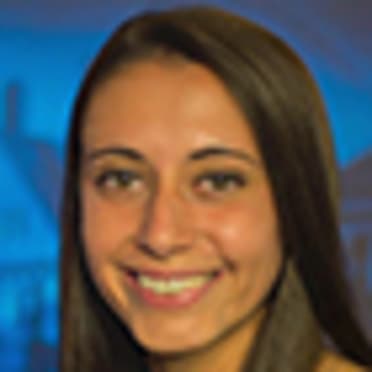Turning a shocking ALS diagnosis into a search for community
No matter what you’re going through, life is so much easier when you know you’re not alone.
This concept ranges from things as simple day-to-day tasks at work to traveling the world with a significant other. But it’s especially true when it comes to dealing with health problems – something Leah Stavenhagen had to learn the hard way.
Stavenhagen learned she had ALS when she was 26 years old. Amyotrophic lateral sclerosis is not something that she had ever heard of leading up to that dreadful day. Naturally, as most of us do, she immediately Googled the disease to find out more, realizing that nearly every reference was to men who battled it.
“You see Lou Gehrig and Stephen Hawking – people you can’t really relate to,” Stavenhagen said.
According to ALS.org, the disease is 20% more common in men than women and most people who develop ALS are between the ages of 40 and 70 (average age of 55 at the time of diagnosis). But Stavenhagen somehow found herself with the disease despite not fitting into the two most likely criteria.
“It was never in the realm of possibilities,” Stavenhagen said. “You just don’t ever imagine you’ll be in that position. Like I said, it’s super isolating to look out and think, ‘Wait, so I have this bizarre, weird thing that's going to totally turn my life on its head? And on top of that, nobody else like me has that? How is that possible?'”
The most notable names who have passed away from ALS are Gehrig (whom the disease was informally named after) and the author Hawking. The first link that pops up on a Google search for famous people with ALS lists seven names – all men. Stavenhagen was left to wonder how she was going to find ways to cope when it felt so wrong to have a terminal illness and nobody like her online to relate to.
That’s when her idea for Her ALS Story began.
Stavenhagen had time to digest her diagnosis before determining that she was ready to go more public to find other people like her who felt so isolated. Along with some help from the group, I Am ALS, she was able to begin her own organization that was dedicated to women who were diagnosed with Lou Gehrig’s Disease at age 35 or younger.
The group’s goals are simple: Challenge the stereotype that ALS is an older white man’s disease, cultivate relationships with female lawmakers to improve current insurance and Medicare standards, introduce legislation to speed up the drug pipeline, communicate with one another to help each other through this journey and, most importantly, raise money for ALS research to one day end this horrid disease.
The group began with maybe 10 people in April 2021, but after a few successful events, it’s already grown to more than 40 young women in just over a year’s time. They raise money for retreats to meet together in person and get massages or do group activities to escape the reality of their situations. They work together to create new ideas and events and are looking to share as many young women’s stories as possible.
“I think our voices maybe are stronger than other people’s because others don’t expect young people to deal with these things,” Stavenhagen said. “We were all just getting married, are forming relationships, just starting careers, still thinking about maybe having a family.
“When you’re in your 20s or 30s, you don’t have to think about the fact that we’re all just on this planet for a limited amount of time, and the women in this group were faced with that very harsh reality way too young.”
As time continues on, there aren’t many people left in this world who can still remember hearing Gehrig’s famous “Luckiest Man” speech on July 4, 1939, when he confirmed he had been diagnosed with this terminal disease. Yet nearly a century later, there has been very little progression in the knowledge of how ALS forms (considering just 10% of the cases are genetic) and how to properly treat it.
“Everybody is going to know someone or have a relationship that is affected by this disease,” Stavenhagen said. “It doesn’t discriminate at all, so that means everyone should pay attention to it.”
The little information that’s known about ALS makes it even more difficult to raise awareness for all the groups who are affected by it. But that’s what Stavenhagen is driven to help fix.
“I think that’s why it’s so cool that we kind of found each other with Her ALS Story,” Stavenhagen said. “We’re a group of young women saying this horrible thing impacts us, too. … We’re all fierce, independent young women. Just some of us have had our independence stripped away a little bit.”
